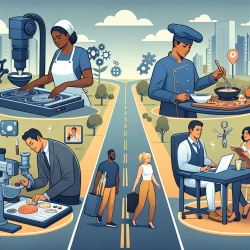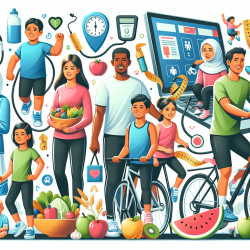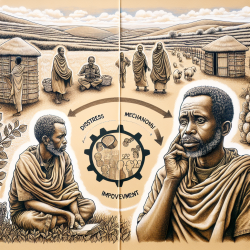In the realm of career development, understanding one's vocational strengths and preferences can be a game-changer. Vocational assessments serve as a vital tool in this journey, offering insights that can guide individuals toward fulfilling employment opportunities. At TinyEYE, we are committed to providing online therapy services that support schools and individuals in navigating these pathways with confidence and clarity.
The Essence of Vocational Assessment
A vocational assessment is a comprehensive process that uses real or simulated work as a focal point for evaluating vocational interests and abilities. This multifaceted approach incorporates medical, psychological, social, vocational, educational, cultural, and economic data to help individuals explore their career paths.
Key Components of Vocational Assessment
- Vocational Evaluation: A systematic exploration of work-related capabilities and interests.
- Career Interest Testing: Often conducted through inventories that match personal interests with potential career areas.
- Aptitude Testing: Standardized tests that measure the potential to learn or perform specific tasks.
- Achievement Testing: Evaluates knowledge and skills acquired through education and experience.
- Situational Assessment: Involves real-world occupational experiences to assess skills and abilities.
- Psychological Testing: Provides insights into personality traits and learning styles relevant to vocational planning.
Navigating Career Paths with Confidence
The journey toward meaningful employment begins with understanding individual preferences and strengths. Vocational assessments can illuminate these areas by asking crucial questions about past work experiences, academic skills, behavior patterns, and social interactions. This holistic approach ensures that individuals are equipped with the knowledge needed to pursue careers that align with their passions and strengths.
The Role of Informal Work Sampling
An essential aspect of vocational assessment is informal work sampling. For instance, assessing Sandy's ability to work as a mechanic assistant involves evaluating her proficiency with hand tools. Similarly, Alicia's interest in working at a beading store requires an assessment of her fine motor skills and ability to distinguish jewelry details. These tailored assessments provide practical insights into an individual's readiness for specific job roles.
The Importance of Skill Development
The path to employment success often requires honing both hard and soft skills. Hard skills are specific abilities demonstrated through measurable tasks, while soft skills encompass behaviors like collaboration and communication. Understanding transferable skills—qualities applicable across various job contexts—is also crucial for career adaptability.
If you're interested in exploring more about vocational assessments and how they can benefit your career journey, please follow this link.










